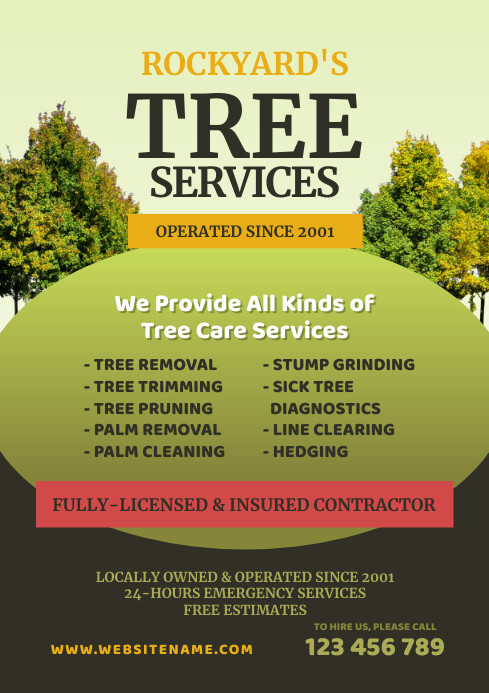In the vibrant tapestry of city living, flora play a critical role in forming our ecosystem. They provide canopy, enhance land value, and add to overall quality of life. However, maintaining the well-being and vitality of urban trees needs specialized knowledge and skills that only certified arborists possess. These devoted professionals are the protectors of our verdant giants, expertly managing the complexities of tree care to ensure that these majestic structures thrive amidst the hurdles of city life.
As cities continue to expand, the significance of arborists in urban forestry cannot be undervalued. From diagnosing tree diseases to preventing hazards and overseeing tree health, arborists are essential in protecting the beauty and utility of our urban landscapes. Understanding the numerous ways in which they contribute can enable property owners and local governments alike to make informed decisions about tree care and upkeep. In this write-up, we investigate into the varied role of arborists, studying the principles behind their work and the various ways they enrich our communities.
The Significance of Employing a Certified Arborist
When it comes to maintaining trees in metropolitan environments, engaging a certified arborist is crucial. These professionals bring a wealth of expertise to the forefront, ensuring that trees are healthy and well-cared-for. A certified arborist has undergone extensive training and assessment, arming them with the capabilities necessary to recognize tree species, check their health, and provide the suitable care. This level of certification provides reassurance to property owners that they are relying on their trees to someone who comprehends the nuances of tree biology and urban forestry practices.
One of the key reasons to engage a certified arborist is their capacity to mitigate potential hazards. Trees can pose significant risks if they are not properly cared for, especially in urban areas where they are in nearby proximity to individuals and structures. A certified arborist can conduct detailed inspections to find weak branches, disease, or any other conditions that may lead to tree failure. By addressing more info , they help mitigate the risks associated with falling branches or entire trees, ensuring safer environments for urban dwellers.
Additionally, certified arborists are knowledgeable in the best practices for tree care, including pruning, pest management, and disease treatment. Their knowledge allows them to make educated decisions about the health and maintenance of trees, which can enhance the aesthetic and value of a property. With their understanding of local tree species and ecosystems, certified arborists benefit not just to specific properties, but also to the overall health of urban forestry. This comprehensive approach underscores the necessity of hiring a certified arborist for anyone looking to maintain their green spaces responsibly and effectively.
Crucial Takeaways on Tree Conditions and Maintenance
Grasping the principles of tree health is important for preserving lush urban environments. Qualified tree specialists possess the expertise and insight to determine the individual demands of diverse tree types. They consider elements like soil condition, water availability, and the surrounding surroundings to identify potential concerns and recommend appropriate maintenance. By implementing methods such as correct shaping and pest management, tree specialists can greatly boost the health of trees’ resilience to disease and environmental challenges.
Consistent tree inspections provide essential data into the health of metropolitan trees. Tree professionals utilize their knowledge to spot early signs of illness, structural issues, or stress elements that may compromise tree vitality. Through a thorough assessment, they can find symptoms that may not be visible to the casual eye, enabling for timely action that can preserve a tree from decline. This proactive approach helps ensure that trees thrive, contributing to improved air purity and overall planetary health in city settings.
Furthermore, the role of certified arborists extends beyond just condition evaluations; they are essential in educating property owners on eco-friendly tree care practices. By offering information on periodic maintenance advice, the importance of soil enrichment, and proper irrigation methods, arborists empower individuals to nurture robust trees in their own backyards. This collaborative effort between professionals and the public leads to a more comprehensive knowledge of tree maintenance, ensuring that city forests remain resilient and sustainable for future generations.

Essential Equipment and Practices Used by Arborists
Arborists depend on a selection of specialized instruments to maintain and nurture trees effectively. Necessary gear features chainsaws for trimming larger limbs and trees, hand saws for pruning, and manual pruners for detailed cuts on little branches. Rigging gear, such as harnesses and ropes, provides protection while approaching tree canopies. Moreover, irrigation equipment and soil testing kits aid arborists assess the health of trees and execute effective care methods.
Techniques applied by arborists reflect their comprehensive knowledge and expertise. Appropriate pruning techniques, such as selective thinning and crown shaping, promote robust growth and lower the risk of collapse. Tree care experts are also trained in support systems and bracing techniques to stabilize fragile branches or stems, guaranteeing structural integrity. Risk assessment techniques are a further vital technique, helping tree care professionals to identify likely dangers and suggest mitigation strategies.
Comprehending the biology of trees is essential for tree care professionals, as it shapes their approach to tree care. For instance, noticing the signs of disease or infestations permits them to apply specific interventions effectively. Tree care experts often use integrated pest management, which minimize toxic substances and concentrate on the overall health of the environment. With their array of strategies and insight, tree care professionals fill a pivotal role in protecting urban forests and fostering healthy ecosystems.
